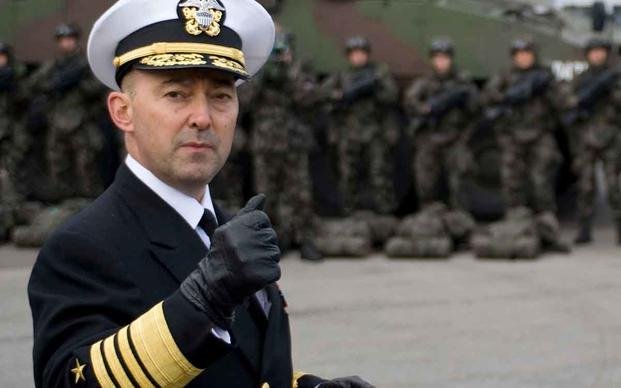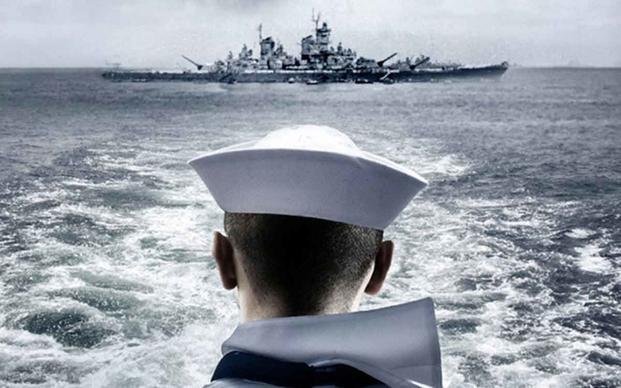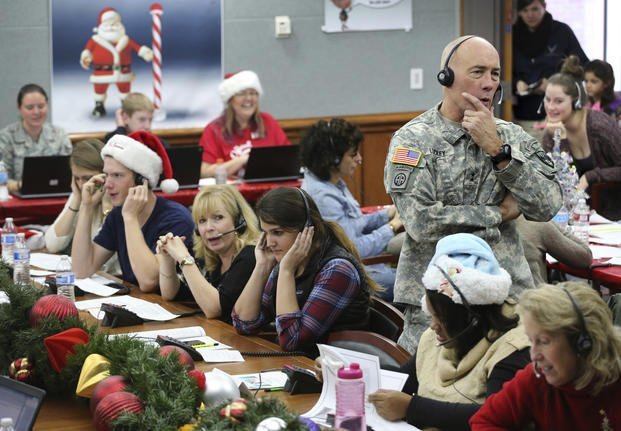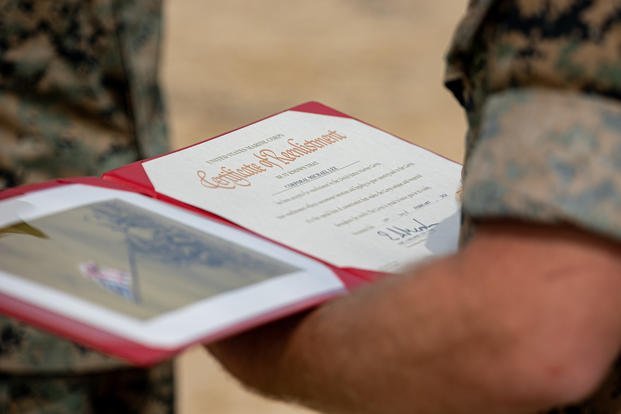As an Amazon associate, Military.com earns from qualifying purchases.
Former Navy Adm. James Stavridis has worn a lot of hats in his life — both literally and figuratively. As if being a former NATO supreme allied commander wasn’t enough, he’s also a national security analyst for NBC News, a vice chair of the Carlyle Group global investment firm and, now, a prolific author. His latest book, “The Restless Wave,” hit bookstores in October 2024, a mere six months after his book, “2054,” was published in March.
Where “2054” is the second in a series of his early-warning futurist cautionary tales co-written with author Elliot Ackerman, “The Restless Wave” is all new and all Stavridis. Set around the 1941 Japanese attack on Pearl Harbor, it’s still a lesson about how easy a slide toward a “great power” conflict can be. It’s also a love letter to the Navy and a sailor’s life, and has much more of the retired admiral’s personal experiences interwoven into an engrossing coming-of-age tale, all framed by World War II in the Pacific.
Read: ‘2054’ Is a Novel of the New Atomic Bomb and the Next American Civil War
“All these characters are based on bits and pieces of real people that I’ve met along the course of my own voyage in the Navy,” Stavridis told Military.com. “If you look at the principal character, he is someone who has to mature and grow. He’s not coming out of the Naval Academy as this heroic figure. He’s got a basket of flaws and has made mistakes. I think any novelist will tell you that part of a particular character comes out of the experiences that they’ve had.”
“The Restless Wave” came about because Stavridis’ publisher approached him with the idea of writing the American version of English authors Patrick O’Brian’s Aubrey-Maturin series of novels. Many might recognize the 2003 Russell Crowe movie “Master and Commander: The Far Side of the World,” which was based on two of the 21 novels from that series. Set during the Napoleonic Wars, it featured the exploits of a Royal Navy captain and his crew, along with his particular friend, naturalist and spy Dr. Stephen Maturin.
“My publisher said, ‘Of course, you’ll want the character based on John Paul Jones.’ And I said, ‘No, the Revolutionary War is not the American equivalent of the Napoleonic Wars,'” Stavridis said. “The American equivalent, of course, is the war in the Pacific. That’s the apotheosis, the highest level of the U.S. Navy’s combat experience is the Second World War in the Pacific. So our story starts there, and the idea is that this will be a series of perhaps five or six novels.”
Like O’Brian’s series and the admiral’s previous fiction books, “The Restless Wave” is more than a war novel — it’s an honest tale about the Greatest Generation. World War II may have affected their generation, even defined it for the most part, but they were far from perfect and had to live their day-to-day lives apart from the war, as well. It has romance and deception, people living hard lives and the personal traumas that come with being human.

“We talk a lot — and we should — about the Greatest Generation, how incredible they were in standing and delivering for the nation,” Stavridis said. “But they were so young, they made mistakes and they had flaws alongside the heroism they displayed. So the first facet of the story that I think is in many ways the most fascinating is that of human character and love tested in this incredible crucible of war.”
Amid the picture of chaos of human existence during the war is a warning. Stavridis is painting the picture of a potentially catastrophic great power conflict with China today, influenced by the same similarities that surrounded World War II: the rapid pace of technological advancement and the setting of the Pacific Ocean, both of which were on his mind as he wrote the book.
“There’s a really good line from Winston Churchill: ‘The farther back you can look, the farther forward you are likely to see,'” Stavridis said. “That’s a really profound thought, and it was banging through my head as I wrote the book.”
Stavridis believes Americans know what a great power war with China would look like, because we can look back to see it in the size, scope and devastating loss of life during the American-Japanese War in the Pacific. The pace of technological advancement and how it is currently changing warfare can be seen on the battlefields of Ukraine, and one only needs to look at the 1940s to understand the parallels.
“The first thing I’d want readers to take away is that we’re flawed. We’re going to make mistakes. What matters is our resilience as we come back again to the challenge,” he said. “No. 2, I would want readers to understand how horrific a great power war, a true massive, theater-wide great power war is. And then No. 3, I would want our militaries today to look back at the Second World War and think about how technology changed and shaped those battlefields. We need to be very mindful of that, going forward.”
Stavridis is already hard at work on a sequel to “The Restless Wave,” one that will take readers and his characters through the end of World War II, into the Korean War and on to the Cuban Missile Crisis and Vietnam War, where mistakes are sure to be made there, too.
“I think any novelist will tell you that part of a particular character comes out of the experiences that they’ve had,” he said. “None of us are perfect. None of us make the right decision every time, and that’s part of the human condition. We all struggle and we all hope to work our way through a challenge.”
Keep Up With the Best in Military Entertainment
Whether you’re looking for news and entertainment, thinking of joining the military or keeping up with military life and benefits, Military.com has you covered. Subscribe to the Military.com newsletter to have military news, updates and resources delivered straight to your inbox.

















